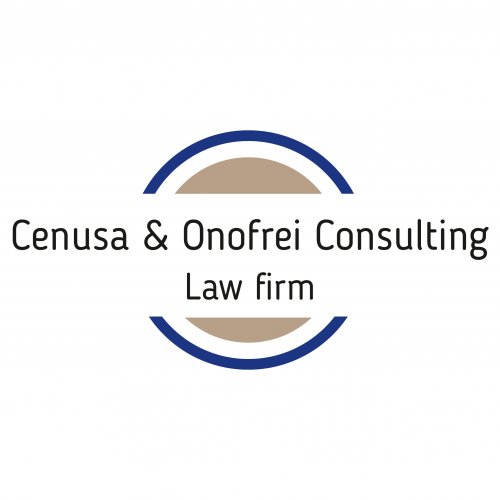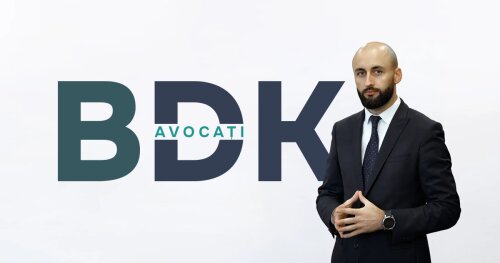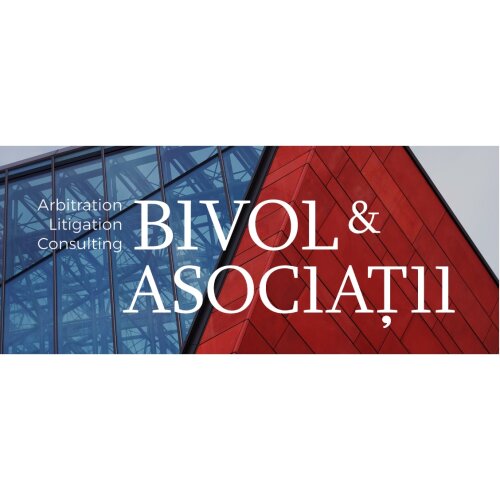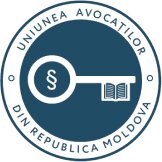Best Public-Private Partnerships (PPP) Lawyers in Republic of Moldova
Share your needs with us, get contacted by law firms.
Free. Takes 2 min.
Or refine your search by selecting a city:
List of the best lawyers in Republic of Moldova
About Public-Private Partnerships (PPP) Law in Republic of Moldova
Public-Private Partnerships (PPP) are collaborative arrangements between government institutions and private sector entities to finance, build, and operate projects that serve the public interest. In the Republic of Moldova, PPPs are specifically regulated by national legislation to encourage private investments in public infrastructure and services. These partnerships can encompass a wide variety of projects, such as roads, healthcare facilities, educational institutions, and utilities, all geared at improving the quality and efficiency of public services.
The law on PPPs in Moldova sets out a detailed framework that defines the contractual relationships, negotiation processes, risk distributions, and approval mechanisms. The legal environment aims to provide transparency, fair competition, and the protection of public interests while offering private partners sufficient guarantees and incentives to invest.
Why You May Need a Lawyer
Navigating the complex world of PPPs in Moldova can be challenging. Several common scenarios may require professional legal assistance:
- Evaluating tender documents and bidding procedures
- Drafting, reviewing, or negotiating PPP contracts and agreements
- Ensuring compliance with local laws and regulatory requirements
- Managing risk allocation, including financial, operational, and legal risks
- Addressing disputes or disagreements with public or private partners
- Conducting due diligence on potential projects or partners
- Assisting with licensing, permits, and other administrative processes
- Representing interests before regulatory bodies or in court
- Advising on the monetization of public assets or intellectual property
A specialized lawyer can safeguard your rights, help you understand your obligations, and ensure that your interests are upheld throughout every stage of a PPP project in the Republic of Moldova.
Local Laws Overview
The regulatory framework for PPPs in Moldova has evolved to align with European Union standards and foster a favorable investment climate:
- The main law governing PPPs is the Law on Public-Private Partnerships, which defines the procedures for initiating, approving, and implementing PPP projects.
- Additional government regulations address transparency, selection procedures, risk and profit sharing, contract duration, and termination conditions.
- PPP agreements in Moldova often involve long-term commitments-sometimes up to 49 years-depending on the project's nature and scale.
- The public partner represents the state or a local authority, while the private partner is typically a company or consortium.
- All PPP projects must undergo competitive selection, and evaluation criteria must be published in advance to ensure fairness.
- Environmental, social, and economic impacts are examined during project assessment to ensure compliance with national development goals and public welfare.
- Dispute resolution can be handled before Moldovan courts or, in some cases, through arbitration as stated within the partnership contract.
Understanding these core aspects of local PPP law is crucial for anyone looking to participate in or advise on such partnerships in Moldova.
Frequently Asked Questions
What is a Public-Private Partnership (PPP) in the Republic of Moldova?
A PPP is a formal arrangement between public authorities and private companies to invest in, construct, operate, or maintain public infrastructure and deliver public services under mutually agreed terms.
Who can initiate a PPP project in Moldova?
Both public authorities (state or municipal) and private companies can propose PPP projects, but all projects require approval from the relevant state entity before proceeding.
What legal forms can PPP projects take?
PPPs in Moldova can take various forms, such as concession agreements, joint ventures, lease contracts, or management contracts, depending on the specific project and sector involved.
What are the typical sectors for PPP projects in Moldova?
Transport infrastructure, utilities, education, healthcare, and municipal services are the most common areas where PPPs are implemented.
Which state authority oversees PPPs in Moldova?
The Public Property Agency and relevant ministries supervise and regulate PPP initiatives, providing guidance and monitoring compliance throughout each project's life cycle.
How are PPP projects selected?
Projects are chosen through public tenders or competitive dialogue procedures to ensure transparency, equal opportunity, and the selection of the most advantageous proposal.
What are the main risks in PPP contracts?
Key risks include financial instability, performance defaults, regulatory changes, and political influences. Detailed risk allocation is handled within the contract negotiation process.
Is there any government financial support for PPP projects?
In some cases, the government may offer financial support such as guarantees, co-financing, or tax incentives, particularly for projects with significant public impact or innovative solutions.
What happens if a dispute arises?
Most PPP contracts specify dispute resolution mechanisms, which may involve mediation, arbitration, or recourse to Moldovan courts, depending on the agreement's provisions.
Can foreign investors participate in PPPs in Moldova?
Yes, Moldova encourages foreign participation in PPP projects, provided that investors comply with national legal requirements and go through the same competitive procedures as local companies.
Additional Resources
For those seeking further information or legal guidance on PPPs in Moldova, the following resources may be helpful:
- Public Property Agency - oversees state property and PPPs
- Ministry of Economy and Infrastructure - policy development, guidance, and support
- National Agency for the Settlement of Disputes - resolves tender and procurement-related disputes
- Chamber of Commerce and Industry of Moldova - business support and networking
- European Bank for Reconstruction and Development (EBRD) in Moldova - investment and advisory support on PPPs
- Legal consulting firms specializing in public procurement and infrastructure projects
Reaching out to these bodies can provide initial direction and more detailed information tailored to specific projects or sectors.
Next Steps
If you are considering involvement in a PPP project or require legal assistance, here is how you can proceed:
- Clearly identify your role or interest in the potential project (public partner, private investor, consultant, etc.)
- Gather all available documentation related to the PPP opportunity, such as tender notices, project concepts, and draft contracts
- Consult with a lawyer or legal advisor experienced in Moldovan PPP law and public procurement
- Assess the legal, financial, and operational risks with professional assistance
- Prepare any questions or concerns you have about the process, compliance, or specific contractual terms
- Stay informed about updates to national legislation and sector-specific regulations
Taking these steps will help ensure your interests are protected and your participation in Moldova's PPP projects is both successful and compliant with local law.
Lawzana helps you find the best lawyers and law firms in Republic of Moldova through a curated and pre-screened list of qualified legal professionals. Our platform offers rankings and detailed profiles of attorneys and law firms, allowing you to compare based on practice areas, including Public-Private Partnerships (PPP), experience, and client feedback.
Each profile includes a description of the firm's areas of practice, client reviews, team members and partners, year of establishment, spoken languages, office locations, contact information, social media presence, and any published articles or resources. Most firms on our platform speak English and are experienced in both local and international legal matters.
Get a quote from top-rated law firms in Republic of Moldova — quickly, securely, and without unnecessary hassle.
Disclaimer:
The information provided on this page is for general informational purposes only and does not constitute legal advice. While we strive to ensure the accuracy and relevance of the content, legal information may change over time, and interpretations of the law can vary. You should always consult with a qualified legal professional for advice specific to your situation.
We disclaim all liability for actions taken or not taken based on the content of this page. If you believe any information is incorrect or outdated, please contact us, and we will review and update it where appropriate.
Browse public-private partnerships (ppp) law firms by city in Republic of Moldova
Refine your search by selecting a city.

















